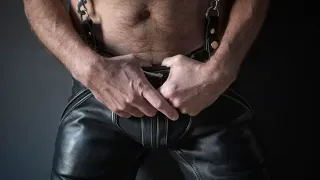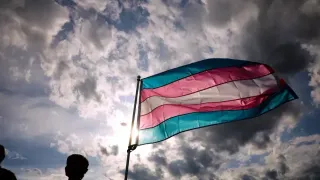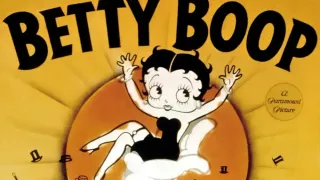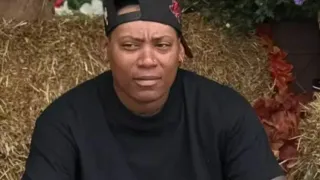November 16, 2014
An Interview With Porn Director Wakefield Poole
Kilian Melloy READ TIME: 3 MIN.
Wakefield Poole first came to prominence as a dancer in the Ballet Russes. He performed and choreographed on stage, but also worked in television and Broadway.
Yet Poole is best known for his work behind the camera, as the director of "Boys in the Sand" and other gay adult film classics, like "Bijou." Poole recently spoke to South Florida Gay News about his film career - how he got started, his successes, failures, and why he stopped making films.
You were a dancer with the Ballet Russes. How you came to have a career in cinema?
I guess the main thing is that it came into my life. I had an 8mm camera, and did some home movies. I had fun with it. I was given a 16mm Bolex wind up with one lens. I started shooting with that. I did a multimedia gallery show and ran it all by hand, and it was a live show, different every time. I was enamored of it.
When I saw bad porn, I thought someone should make a porno with an aesthetic to it --�one you should be proud to watch. But I don't even own a camera now. It's like when I stopped dancing. I miss the central part of it. I don't miss filming, I miss the mental process of it.
How was making porn different "back in the day?"
Now they cast as tops and bottoms and know what they are going to do going into it. No tension, no uneasiness in it. There was a lot of insecurity in my films, having sex with someone for the first time, so there is a lot of playing and role searching, and that keeps the tension going.
You dared to put your name on your films in an era where it was illegal to make pornographic works. Why were you so willing to risk your life for your art?
There weren't a lot of people who were out. Just seeing my name above the title on a theatre made its impact. Hundreds of people saw "Boys in the Sand" and came out after seeing the film. I think that was one of my big contributions to the gay community, though I'm not recognized for that in gay history.
I did have a lot to do with the attitudes of gay people after the film. Cockrings weren't the norm, and dildos and the things I threw in because of my lifestyle and what I was aware of. Suddenly everyone was doing it, including straight people.
What can you say about the fiasco, "The Bible?"
The film wasn't a creative flop, but a financial flop because we closed it after 10 days, because the New York Times, which was supportive of "Boys in the Sand," didn't support us. David Byrd did the tongue-in-cheek poster because the film is tongue-in-cheek, and he wanted folks to know it wasn't hardcore sex film. We had to revise the ad, and we had no ad campaign. People who did come didn't know what they were going to see, and it wasn't hardcore and they were disappointed.
Did the failure of "The Bible" stop you from making films?
The reason I stopped making films was the AIDS situation. I lost my fanbase to AIDS. I saw them all die. It's a miracle I'm not dead. Cocaine saved my life. I did so much coke, I couldn't have sex.
 Copyright South Florida Gay News. For more articles, visit
Copyright South Florida Gay News. For more articles, visit 





